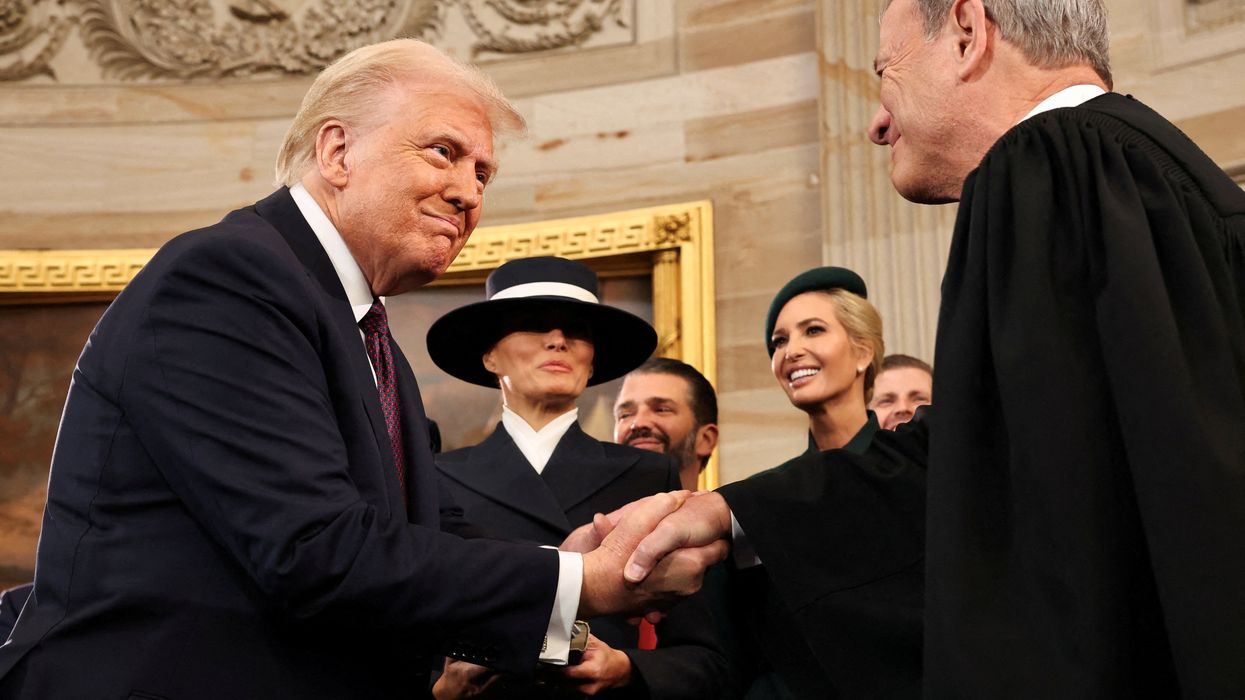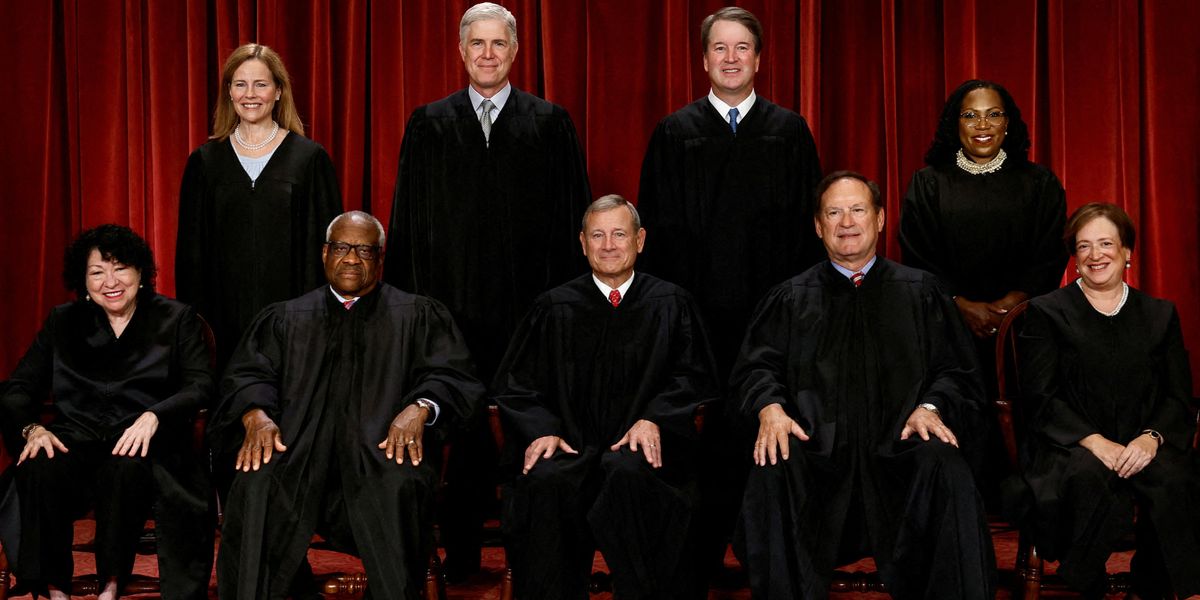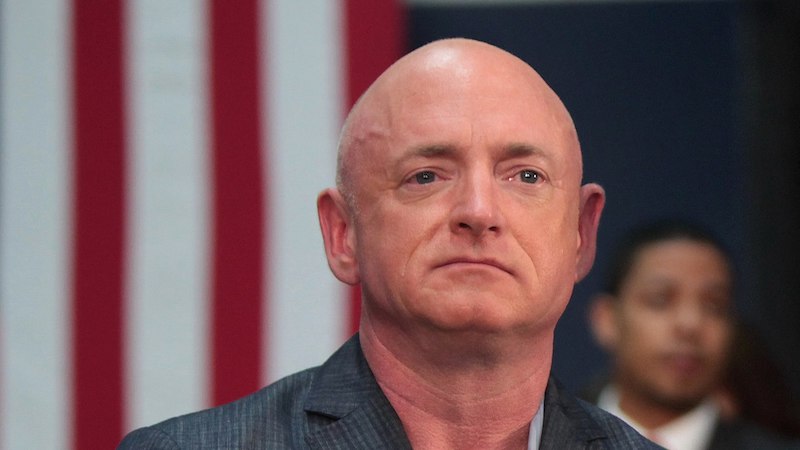During Donald Trump's second presidency, many of his critics, both left and right, are warning that he is failing to respect Congress as a "coequal...
Vous n'êtes pas connecté
- English
- Français
- عربي
- Español
- Deutsch
- Português
- русский язык
- Català
- Italiano
- Nederlands, Vlaams
- Norsk
- فارسی
- বাংলা
- اردو
- Azərbaycan dili
- Bahasa Indonesia
- Հայերեն
- Ελληνικά
- Bosanski jezik
- українська мова
- Íslenska
- Türkmen, Түркмен
- Türkçe
- Shqip
- Eesti keel
- magyar
- Қазақ тілі
- Kalaallisut ; kalaallit oqaasii
- Lietuvių kalba
- Latviešu valoda
- македонски јазик
- Монгол
- Bahasa Melayu ; بهاس ملايو
- ဗမာစာ
- Slovenščina
- тоҷикӣ ; toğikī ; تاجیکی
- ไทย
- O'zbek ; Ўзбек ; أۇزبېك
- Tiếng Việt
- ភាសាខ្មែរ
- རྫོང་ཁ
- Soomaaliga ; af Soomaali
Rubriques :
 Maroc - RAWSTORY.COM - Raw Story - 07/07/2024 11:04
Maroc - RAWSTORY.COM - Raw Story - 07/07/2024 11:04
Time to fight a lawless Supreme Court
Federalist judges claim to loathe judicial activism. To preserve the separation of powers, federalist judges restrict their rulings to the narrow set of facts and laws in front of them, and go not an inch further lest their rulings impinge on the executive or legislative function. But to find criminal immunity for former President Donald Trump, the Supreme Court’s federalist majority bucked all traditional and originalist leanings, and announced instead that the court would be “writing a rule for the ages” — and dealt an astonishing blow to the U.S. Constitution.ALSO READ: Giuliani lost his law license — but not his honorary degrees from these five universitiesAfter overturning Roe v. Wade for the sin of imposing “on the entire country a detailed set of rules for pregnancy divided into trimesters, much like those that one might expect to find in a statute or regulation,” the Court did the very thing it just ruled unconstitutional: it imposed on the entire country a detailed set of rules for presidential immunity, divided into three stages, exactly “like those one might expect to find in a statute or regulation.” After declaring that the right to obtain an abortion was not “rooted in the Nation’s history and tradition,” the Court set 248 years of the nation’s history and tradition on fire.The Roberts Court wrote new lawWith the stroke of a pen, federalists on the high court skipped the arduous but constitutionally required process to amend the Constitution. They skipped ratification by two-thirds of the House and Senate, skipped the Constitutional convention, skipped two-thirds of the nation’s State legislatures altogether, and simply rewrote Articles I, II, and III of the Constitution to create the following three stages of presidential immunity:• Absolute criminal immunity, which applies whenever a former president acts within his “conclusive and preclusive” constitutional authority. Any action undertaken under color or shade of the Constitution or laws is a function of core constitutional power, and Trump is free to break all criminal laws — bribery, treason, assassination, hoarding classified documents, siccing the military on protestors, selling secrets, subjecting critics to military tribunals and executions — as long as he does so in pursuit of his core presidential duties, which are vast and comprehensive. Negotiations with foreign governments in particular fall exclusively under the presidential domain of Article II, even if treasonous, and remain immune from criminal prosecution no matter the scope of national injury.• Presumptive immunity, which applies to other official acts and shifts the burden to the government to show that criminal prosecution would not create a “danger of intrusion” on the authority and functions of the Executive Branch. When Trump tried to pressure former vice president Mike Pence to stop the electoral count and adopt fraudulent electors, for example, Chief Justice Roberts said he was “presumptively” immune, a presumption the government could fight to rebut.• No immunity applies to “unofficial acts,” but lower courts are left to guess where the line between official and unofficial sits, and Roberts put his thumb on the scale- and rewrote the rules of evidence -- by barring evidence of related “immune” acts from becoming evidence in any criminal trial for unofficial acts.Roberts wrote that it was not the Supreme Court’s job to sift through, weigh, and consider the evidence to figure out what presidential conduct was unofficial. “That analysis,” Roberts wrote, “ultimately is best left to the lower courts to perform in the first instance.” The court could have examined Trump’s attempt to overthrow the 2020 election through the contorted lens of its own ruling, but that would have saved time. The court’s goal was to send the case back to District Court Judge Tanya Chutkan for detailed factual and evidentiary hearings that appellate courts and the Supreme Court will review again — months, and possibly years, after the November election. The Roberts Court amended the ConstitutionThe American colonists, who demanded independence from King George III, despised the king’s corruption, and that of his military officers. With Trump and his corrupt enablers, only the names have been changed: Rudy Giuliani (just disbarred); Steve Bannon (now in prison); Peter Navarro (also serving time), Roger Stone (sentenced to three years for lying to Congress, pardoned by Trump), Paul Manafort (sentenced to 7 1/2 years for fraud, illegal foreign lobbying, and witness tampering, Trump pardoned him and brought him back to Trump’s 2024 campaign).In the Declaration of Independence, colonists declared that they would no longer be governed by a lawless king and his enablers. Instead, they declared they would create a new form of government where all men, at least in theory, were equal before the law. Supreme Court. (Wolfgang Schaller / Shutterstock)When they later wrote the Constitution in pursuit of that goal, the framers did not draft immunity for the president; they did just the opposite by providing for the removal of the president for “high crimes and misdemeanors.”They also granted limited immunity to legislators in Art. I, §6, the Speech or Debate Clause: “Senators and Representatives . . . shall in all Cases, except Treason, Felony and Breach of the Peace, be privileged from Arrest (while traveling to and from, and while attending, Congress) and for any Speech or Debate in either House, they shall not be questioned in any other Place.” Note that the founders immunized their speech — not their actions.The founders expressly declined to extend similar immunities to presidents. This was no oversight. Rather, the Constitution in Article I expressly anticipates criminal prosecution: After a President is impeached, convicted, and removed from office, he “shall nevertheless be liable and subject to Indictment, Trial, Judgment and Punishment, according to Law.” Not so, says the Roberts court. What’s next?Kevin Roberts, president of the Heritage Foundation and chief advocate of Project 2025, Trump’s plan to turn the United States into a rightwing dictatorship, declared that we are “in the process of the second American Revolution, which will remain bloodless if the left allows it to be.” Since SCOTUS also just stripped the federal government of most of its power to fight climate change, we could very well see violence from the left this time.ALSO READ: Thief steals Vermont Democratic Party debit card, hits FanDuel sports betting siteShort of that, between now and November, we need to beat a loud and incessant drum for court reform. The Constitution, if it still matters at all, requires two-thirds of the Senate to remove Supreme Court justices. Given the lopsided power of rural states, it’s almost impossible that Democrats will win a two-thirds majority of the U.S. Senate in November, so they need to focus on winning a majority in the House. If that happens, there are several reform options, not mutually exclusive:Expand the court and limit their terms: The Constitution does not set the pay, or the length of service, or the number of justices on the Supreme Court. Congress does. That means Congress can increase the number of justices from nine to 13, because there are now 13 courts of appeal below the Supreme Court; they can also impose term limits. Write to your representatives, write letters to the editor, support Sen. Sheldon Whitehouse in his fight to fix the Supreme Court, meet with your neighbors, join protests and demand court reform from November’s election. Investigate and impeach Thomas and Alito: The Supreme Court perfected Trump’s Jan. 6, 2021, coup attempt despite repeated calls for Justices Thomas and Alito to recuse for their public displays of pro-insurrectionist bias. If Democrats win a majority of House seats, they can establish an investigative commission similar to the J6 Select Committee. With full subpoena and investigative powers, the committee can also examine Alito and Thomas’ donor gifts, Leonard Leo dark money graft and various ethical violations with particularity. (Side bet: Trump, immunity, the court, and gutting Chevron by substituting expert opinions with judges’ lay opinions are all about protecting fossil fuel money.)Impose mandatory ethics: Congress can also address the Supreme Court’s refusal to follow the rules of ethics that apply to all other federal judges in the nation. It should not be left to crooked justices to police themselves. At a minimum, Congress can establish an independent counsel to monitor and police the court, and empower them, when necessary, to impose recusal and discipline.Remove jurists who lied during confirmation: Another avenue for reigning in a rogue court is impeachment on the grounds that justices Brett Kavanaugh, Amy Coney Barrett and Neil Gorsuch each swore that they’d respect precedent on Roe v. Wade during their confirmation hearings, but seemed to forget about their testimony once they were sworn in. Lying to Congress is a felony.Trump seeks revenge, retribution and even executions for his political adversaries, and Republicans on the Supreme Court just gave him the green light. They have led the country into mortal danger, with no enforcement powers of their own. Perhaps deciding that a president can order SEAL Team 6 to assassinate threats to the nation was the wrong call.Sabrina Haake is a columnist and 25 year litigator specializing in 1st and 14th Amendment defense. Her Substack, The Haake Take, is free.
Articles similaires
'Facts matter': Supreme Court justices called out by NYT over 'dangerous Trump' agenda
With a series of critical cases still to be heard, the six conservative justices seated on the Supreme Court were admonished by the New York Times...
‘5-alarm fire’ siren blaring as Supreme Court ready to hand Trump a dark gift: analyst
The Supreme Court may very well deliver President Donald Trump his greatest expansion of executive power yet as it weighs several monumental cases...
‘5-alarm fire’ siren blaring as Supreme Court ready to hand Trump a dark gift: analyst
The Supreme Court may very well deliver President Donald Trump his greatest expansion of executive power yet as it weighs several monumental cases...
'Obliteration!' Trump blurts panicked warning over 'catastrophic' Supreme Court plans
President Donald Trump unleashed an unsubstantiated warning Friday, claiming the Democratic Party's number one priority if it wins the election is the...
'Obliteration!' Trump blurts panicked warning over 'catastrophic' Supreme Court plans
President Donald Trump unleashed an unsubstantiated warning Friday, claiming the Democratic Party's number one priority if it wins the election is the...
Trump Threatens Mark Kelly For Reiterating The Military’s Obligation To The Constitution – OpEd
The Trump administration recently threatened to return retired Navy captain, former astronaut, and now Senator Mark Kelly to active duty and...
Trump Threatens Mark Kelly For Reiterating The Military’s Obligation To The Constitution – OpEd
The Trump administration recently threatened to return retired Navy captain, former astronaut, and now Senator Mark Kelly to active duty and...
Trump's twisted onslaught won't be stopped by these enablers
The “F-word,” fascism, has recently seen increasing use in American public discourse — and for good reason. Some critics claim that the word,...
Trump's twisted onslaught won't be stopped by these enablers
The “F-word,” fascism, has recently seen increasing use in American public discourse — and for good reason. Some critics claim that the word,...
Les derniers communiqués
-
American Airlines invites AAdvantage members to help make a dierence this Giving Tuesday
AMERICAN AIRLINES - 01/12/2025
-
American Airlines to present at Goldman Sachs and Bernstein conferences
AMERICAN AIRLINES - 26/11/2025
-
American Airlines gets ready to unwrap deals for travelers this holiday season
AMERICAN AIRLINES - 25/11/2025
-
Belkin Expands Audio Range in the Middle East with SoundForm Anywhere True Wireless Earbuds
Belkin - 24/11/2025
-
Border Patrol Agents Face Shots Fired, Vehicle Rammings, Bricks Thrown in Chicago on Saturday
Amazon Web Service - 09/11/2025
-
Border Patrol Agents Face Shots Fired, Vehicle Rammings, Bricks Thrown in Chicago on Saturday
The Department of homeland security - 09/11/2025
-
ICE Arrests Worst of the Worst Criminal Illegal Aliens Including Pedophiles, Rapists and Violent Assailants
The Department of homeland security - 07/11/2025
-
DHS Sets the Record Straight on Misleading Video, Leaving Out Key Facts Including that the Woman Arrested Repeatedly Stabbed Her Coworker with Scissors
The Department of homeland security - 07/11/2025
-
United Airlines Launches MileagePlus Debit Rewards Card that Earns Miles for Spending and Saving
UNITED AIRLINES - 04/11/2025
-
American Airlines and AAdvantage members donate more than $1.2 million for Hurricane Melissa relief eorts
AMERICAN AIRLINES - 31/10/2025






